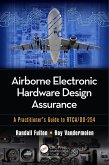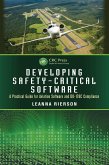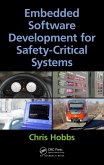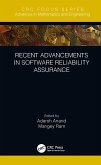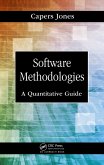This practical guide to the use of RTCA/DO-254 in the development of airborne electronic hardware for safety critical airborne applications:
- Describes how to optimize engineering processes and practices to harmonize with DO-254
- Addresses the single most problematic aspect of engineering and compliance to DO-254-poorly written requirements
- Includes a tutorial on how to write requirements that will minimize the cost and effort of electronic design and verification
- Discusses the common pitfalls encountered by practitioners of DO-254, along with how those pitfalls occur and what can be done about them
- Settles the ongoing debate and misconceptions about the true definition of a derived requirement
- Promotes embracing DO-254 as the best means to achieve compliance to it, as well as the best path to high-quality electronic hardware
Airborne Electronic Hardware Design Assurance: A Practitioner's Guide to RTCA/DO-254 offers real-world insight into RTCA/DO-254 and how its objectives can be satisfied. It provides engineers with valuable information that can be applied to any project to make compliance to DO-254 as easy and problem-free as possible.
Dieser Download kann aus rechtlichen Gründen nur mit Rechnungsadresse in A, B, BG, CY, CZ, D, DK, EW, E, FIN, F, GR, HR, H, IRL, I, LT, L, LR, M, NL, PL, P, R, S, SLO, SK ausgeliefert werden.
-Dr. Patrick Mejasson, Thales Avionics, Paris, France
"With a combined total of over 70 years of experience, Randall Fulton and Roy Vandermolen are veterans in aviation certification and airborne electronic hardware (AEH) development. Based on their vast and varied experience, they provide crucial information necessary to successfully manage, develop, and verify AEH. Reading this book is like sitting in a classroom with expert and battle-tested instructors. The concepts of AEH development, design, validation, and verification are clearly explained and illustrated. This book explains both the 'why' and the 'how' of critical concepts related to DO-254 compliance. Additionally, the material is written at a level that is practical for systems engineers, managers, and hardware engineers."
-Leanna Rierson, Digital Safety Consulting, Wichita, Kansas, USA
"The succinct manner in which the requirements development methodology is captured is worth the price of the book. ... provides a great reference for evaluating requirements development processes and standards."
-Jeff Knickerbocker, Sunrise Certification and Consulting, Inc., Winfield, Kansas, USA



